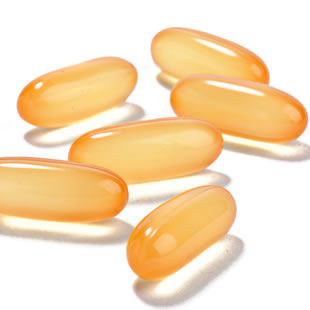I consider myself lucky, I don't really get sick often. I'm not one to catch viruses or colds. Not that it never happens, it just doesn't happen as often as some other people. For about a week now, I've had some sniffles and sinus drainage. I believe it's because of the weather fluctuation. One day it's 75 degrees and the next it's 50!
I found this on the Eating Well website (www.eatingwell.com) and thought I'd share it!
IMMUNE BOOSTING FOODS
The much-dreaded cold and flu season is upon us. How can you bolster your defenses against the germs lurking in the common areas in your office, the mall where you do your holiday shopping and the rest stops you encounter in your holiday travels? Include these 5 immunity boosters in your diet, plus make sure to wash your hands, take a multi-vitamin and try to get enough sleep too.
1. Chicken Soup
It turns out there is something to chicken soup after all. In one study, hot chicken soup was more effective than hot or cold water at making noses run—a good thing since nasal secretions help rid the body of pathogenic viruses and bacteria. Like any hot liquid, soup also helps you to stay hydrated and raises the temperature of the airways, both of which are important for loosening secretions. Adding a few hot chiles to this Chicken Noodle Soup with Dill recipe might help loosen things up even more.
2. Yogurt

Regularly eating probiotics, so-called “good bacteria” found in foods like yogurt and sauerkraut, may help your immune system work better and improve digestion. Kefir (a yogurt-like beverage) is also a good bet. Look for products labeled with a “Live & Active Cultures” seal from the National Yogurt Association, which signifies that the yogurt contains a set minimum amount of two particular types of beneficial bacteria. (While it’s not a guarantee of probiotic power—the bacterial counts don’t differentiate between added probiotic organisms and the bacteria that’s used to ferment the yogurt—the seal is a helpful start.) With the new “probiotic” cereals and granola bars on the market now, it’s not always clear how much good bacteria the manufacturers actually add to the products or whether the strains included are effective. If you really want to know about the science backing a product’s “probiotic power,” contact the manufacturer.
3. Green Tea

Polyphenols, potent plant antioxidants, are what’s believed to give green tea its immune-boosting effects. One laboratory study suggested that a particular type of polyphenols called catechins may kill influenza viruses. To maximize benefits and minimize bitterness, use just-below-boiling water and steep green tea no more than a minute or two. A little lemon and honey can also help blunt the bitterness. But don’t add milk, because the proteins will bind to the polyphenols, making them ineffective.
4. Vitamin D

In a study published recently in the American Journal of Clinical Nutrition, children who took daily vitamin D supplements (1,200 IU) were 40 percent less likely to get a common flu virus than kids who took a placebo. Laboratory studies indicate that the nutrient may help immune cells identify and destroy bacteria and viruses that make us sick, says Adit Ginde, M.D., M.P.H., a public health researcher at the University of Colorado School of Medicine in Denver. Since the majority of Americans don’t get enough vitamin D, most experts recommend a D supplement. You can also get it (in small doses) from fatty fish, such as salmon, and fortified milk—and your body makes vitamin D from the sun.
5. Soluble Fiber

Mice that ate a diet rich in soluble fiber for six weeks recovered from a bacterial infection in half the time it took mice that chowed on meals containing mixed fiber, according to a recent study in the journal Brain, Behavior and Immunity. Soluble fiber—abundant in citrus fruits, apples, carrots, beans and oats—helps fight inflammation, says lead author Christina Sherry, Ph.D., R.D., of the University of Michigan, Ann Arbor. Insoluble fiber—found in wheat, whole grains, nuts and green leafy vegetables—is still important for overall health, but it doesn’t seem to have the same impact on immunity. Strive for 25 to 38 grams of total fiber a day, Sherry says, paying extra attention to getting the soluble kind.
http://www.eatingwell.com/nutrition_health/healthy_immunity_center/5_immunity_boosting_foods_nutrients?page=1

No comments:
Post a Comment